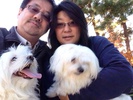At the Rape of Nanking: 從二戰日本屠夫手中德國納粹挽救20萬中國人性命 A Nazi Who Saved 200,000 Chinese Lives - John Heinrich Detlev Rabe - his efforts to stop the atrocities of the Japanese army during the Nanking Occupa......
Johnson Choi-1008 09/06 57665.0/1 









At the Rape of Nanking: 從二戰日本屠夫手中德國納粹挽救20萬中國人性命 A Nazi Who Saved 200,000 Chinese Lives - John Heinrich Detlev Rabe - his efforts to stop the atrocities of the Japanese army during the Nanking Occupation and his work to protect and help the Chinese civilians during the event

The Nanking Safety Zone, which he helped to establish, sheltered approximately 200,000 Chinese people from slaughter during the massacre. He officially represented Germany and acted as senior chief of the European – American establishment that remained in Nanking, the Chinese capital at the time, when the city fell to the Japanese troops.
By DAVID W. CHEN Published: December 12, 1996
When the invading Japanese Army overran the Nationalist Chinese capital in December 1937, soldiers embarked on a two-month rampage of looting, rape and killing that left tens of thousands of Chinese civilians dead in what became known as the Rape of Nanking.
Now a recently unearthed diary reveals an unlikely rescuer of thousands of Chinese: a German businessman living in China who was the leader of the local Nazi organization.
The businessman, John Rabe, kept a 1,200-page diary that provides a rare third-party account of the atrocities. In it, he writes of digging foxholes in his backyard to shelter 650 Chinese and of repelling Japanese troops who tried to climb over the wall, of dashing through war-torn areas to deliver rice, and of stopping Japanese soldiers from raping Chinese women. He even wrote to Hitler to complain about the Japanese actions.
''These escapades were quite dangerous,'' he wrote in his diary. ''The Japanese had pistols and bayonets and I -- as mentioned before -- had only party symbols and my swastika armband.''
Mr. Rabe (pronounced RAH-bay), who died in 1950, lived and worked in China from 1908 to 1938. His diary sheds light on a heretofore little-known man, who, although a Nazi loyalist, risked his life and his status to save people who would later become his country's enemies. Indeed, Mr. Rabe's outspoken support for the Chinese upon his return to Germany appears to have ruined his career.
Some who have followed his case say that he, like Oskar Schindler, the German industrialist who protected Jews under very different circumstances, offers another example of the durability of humanitarian impulses in the cruelest of times.
Scholars say Mr. Rabe's diary, which includes reports from other foreign observers, photos and other memorabilia, is valuable not so much for revealing new historical facts, but because it provides an unusually detailed and personal account from a German witness to an incident considered among the most brutal in modern warfare. They believe the diary to be authentic, because American missionaries in China who were Mr. Rabe's contemporaries knew of his actions and supplied similar accounts of atrocities.
The diary also offers a counterweight to claims by some Japanese officials who have long denied either the existence or the scale of the massacre in Nanking, which is now known as Nanjing.
''It's an incredibly gripping and depressing narrative, done very carefully with an enormous amount of detail and drama,'' said William C. Kirby, a professor of modern Chinese history at Harvard University, who has read parts of the diary in German. ''It will reopen this case in a very important way in that people can go through the day-by-day account and add 100 to 200 stories to what is popularly known.''
The diary has only now come to light because of the efforts of Iris Chang, a Sunnyvale, Calif., author. While researching a book on the Nanjing massacre a few years ago, she stumbled upon a few references to Mr. Rabe's humanitarian efforts. She tracked down Mr. Rabe's granddaughter, Ursula Reinhardt, in Berlin, and upon discovering that Mr. Rabe had kept a diary, persuaded the family to make it public.
That will formally happen today at a news conference at the Hotel Intercontinental in New York, with Mrs. Reinhardt among those expected to attend. The public announcement is being organized by the Alliance in Memory of Victims of the Nanjing Massacre, a Chinese-American group, said Tzuping Shao, a past president. Eventually, copies of the diary are to be donated to Yale Divinity School Library and Nanjing Massacre Memorial Hall, in China.
Martha L. Smalley, research services librarian at Yale Divinity School, said Mr. Rabe's accounts are corroborated by documents on display at a current Yale exhibition called ''American Missionary Eyewitnesses to the Nanjing Massacre.''
One such missionary, Robert O. Wilson, a Harvard-trained doctor who worked in China in the 1930's, wrote of Mr. Rabe:
''He is well up in Nazi circles and after coming into such close contact with him as we have for the past few weeks and discover$(ing$) what a splendid man he is and what a tremendous heart he has, it is hard to reconcile his personality with his adulation of 'Der Fuhrer.' ''
It is not clear whether Mr. Rabe embraced the oppression of Jews and other groups in Nazi Germany. He lived outside Germany during the time of Hitler's rise to power, and there is no record of the extent of his activities in the Nazi Party after he returned to Germany in 1938, according to Ms. Chang. Because scholars, who received the diary only a few days ago, have not finished reading it, they cannot say if it contains expressions of anti-Semitism.
But Mr. Rabe was outspoken in his support for Nazism. In a lecture he delivered after his return to Germany in February 1938, he said, ''Although I feel tremendous sympathy for the suffering of China, I am still, above all, pro-German and I believe not only in the correctness of our political system but, as an organizer of the party, I am behind the system 100 percent.''



